Key finding
The food industry is insufficiently aligned with the sustainable development agenda

Sitting at the intersection of climate, nature, health and people, the food and agriculture sector plays a critical role in tackling the world’s most urgent challenges and ultimately achieving the SDGs. The COVID-19 pandemic has exacerbated these challenges. While the food industry has seemingly adapted to the crisis at a global level, this has rarely been the case in low- and middle-income countries. Alongside climate change and conflict, the pandemic has pushed 270 million more people towards food insecurity, according to the World Food Programme, exposing the inability of complex supply chains to ensure the availability of nutritious foods for all in the event of disruption.
Food and agriculture companies can combat the negative effects of their industry on the planet and human well-being by establishing an approach that is holistic, in that it considers the full breadth of the supply chain and the range of interconnected challenges. Stand-alone commitments, such as reducing GHG emissions or using less packaging, are a good place to start when it comes to establishing a strategy to contribute to a sustainable food system. Even better are targets that are time-bound and measurable. However, companies often overlook key areas of impact across the three dimensions of environment, nutrition and social inclusion.
Companies demonstrate limited understanding of their role in food systems transformation
The 350 most influential food and agriculture companies, representing $8.7 trillion – more than half of global revenue in this sector – lack the commitments and targets urgently needed to protect the planet and improve human well-being. Roughly a quarter of the companies assessed have not publicly disclosed commitments to key topics underpinning the food systems transformation agenda. The majority of these companies have never before been part of an accountability mechanism like an index or benchmark.
The other 75% have taken the first steps towards acknowledging their role and responsibility by publicly disclosing targets and commitments in some key areas. Generally, however, companies display weak or incomplete understanding of their contribution to a healthy, sustainable and more equitable food system. Only twelve companies show true recognition of their role as corporate citizens by demonstrating leading practices across the three dimensions. These companies are: Arla Foods, CNH Industrial, Danone, Heineken, McDonald’s, Nestlé, OCP, Orkla, PepsiCo, ThaiBev, Unilever and Yara.
Agendas will align in 2021
Agendas such as the SDGs and the Paris Climate Agreement play an important role in defining global challenges and setting goals to solve them. The many food systems reports published, which our research framework has built upon, provide further clarity and motivation for policymakers, civil society and businesses embarking on pathways towards a more sustainable system that works for everyone. Yet translating these goals into business action is proving challenging.
Several global events planned for 2021 promise to help align these agendas. Not only will there be a landmark UN Food Systems Summit, but the G7 and COP26 are also expected to put food systems front and centre. The run-up to the UN Food Systems Summit therefore provides the perfect opportunity for companies to come together and set ambitious targets, aligning business action with game-changing initiatives and practices to scale up efforts to realise lasting systemic change.
